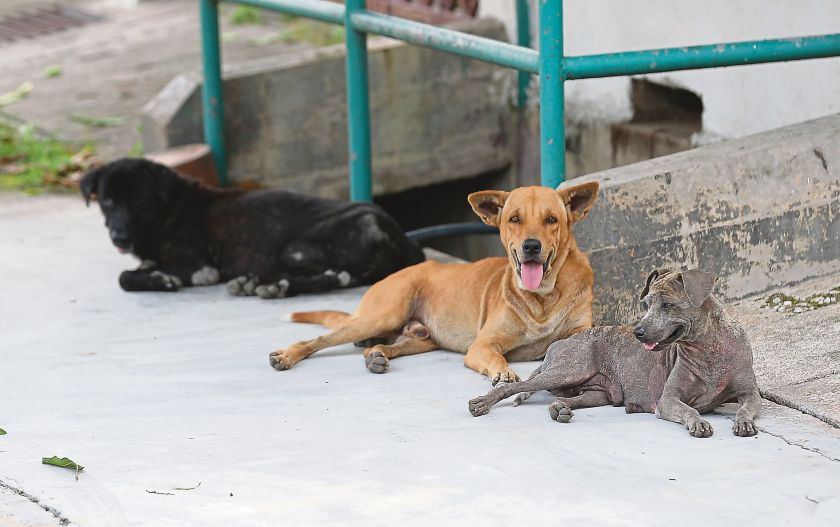KUCHING, Feb 14 — The federal Veterinary Department will introduce bait laced with anti-rabies vaccine as a new strategy against the spread of the disease among stray dogs in the state, its director-general Datuk Dr Quaza Nizamuddin Hassan Nizar said today.
“We want to use this in areas with many stray dogs and areas that are not easily accessible,” he said after paying a courtesy call on Deputy Chief Minister Datuk Amar Douglas Uggah here.
“We will use the new strategy alongside the existing ones in the on-going anti-rabies operation,” he said, adding that the department is in the process of buying the vaccine for the bait.
Quaza said the department will conduct a study to see its impact on stray dogs and how it can affect canine immunisation.
He said Sarawak is doing well in its efforts to combat the rabies outbreak which started in June 2017.
He offered his assurance that the department is committed to fighting and containing the disease.
On another matter, he praised the state government over its ongoing plans to aggressively increase the cattle population in its effort to boost beef production.
He described this as “a step in the right direction and the way to move forward”.
Dr Quaza added Malaysia is expected to face a serious issue in beef production by 2035.
“We do not have the breeder population now. We need to have at least 200,000 heads in the national herd each year for the next five years to stop the decline.
“This should be made a national priority,” he said, adding that Malaysia is now only producing 50,000 heads of cattle but is importing 150,000 metric tons of beef annually.
He said his department had proposed three models to large oil palm companies.
“First, we are suggesting that they set aside a certain portion of their land as cattle raising areas and do the breeding themselves and secondly, they can collaborate with those already having the expertise.
“The other option is they rent out their land to breeders who can breed in a more systematic manner and are supervised by the department,” he said.
“We are looking at offering them rebate, tax incentives and others to motivate them,” he said.
Dr Quaza said there are a total of 5.9 million hectares under oil palm in the country inclusive of the two million in Sarawak.
On the African Swine Fever (ASF), he said it is crucial for the state Veterinary Services Department to continue conducting strict surveillance and be very vigilant to stop the spread of the disease in the state.
“Many countries in our region are now affected. The risk of spreading to Malaysia is real,” he said.
He said from the Asian experience, it is acknowledged the main means of ASF transmission is through feed.
“We are particularly concerned with backyard farming and those done by longhouse folks.
“We fear that the food waste fed to the pigs might contain pork products from affected animals,” he said.
Dr Quaza is retiring soon after more than 36 years in service.
He was accompanied by the state Veterinary Services Director Dr Adrian Susin and his deputy Dr Stephen Gabriel on the visit.



















